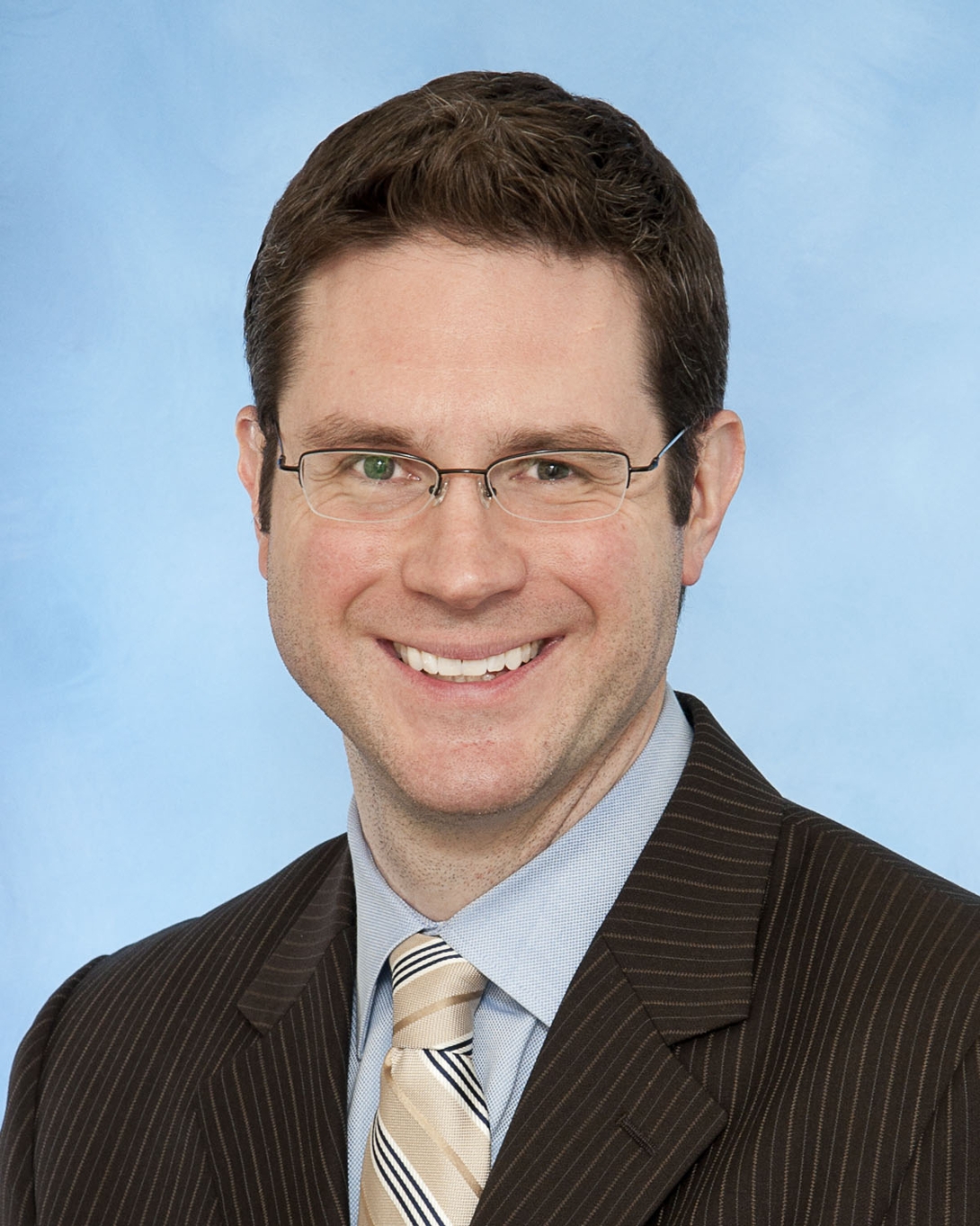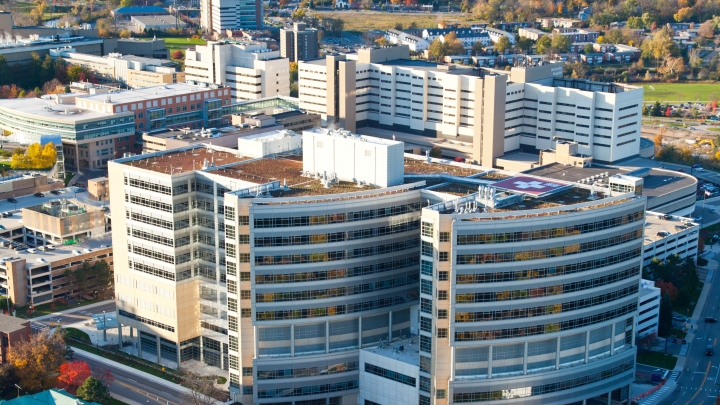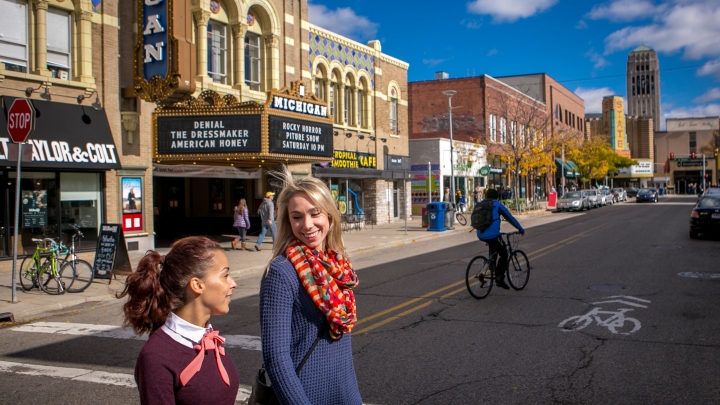
This ACGME-accredited 1-year program is a destination for aspiring craniofacial surgeons. Fellows receive comprehensive clinical training in a high-volume academic medical center that also excels at clinical and basic science research.
Our craniofacial surgery fellowship, one of a handful in the country to earn accreditation from the Accreditation Council on Graduate Medical Education, offers:
- Clinical experience with all aspects of craniofacial surgery, combined with a comprehensive teaching curriculum.
- Training by leaders in the field of craniofacial surgery, including experts in translational and basic science research and in surgery education.
- Instruction in the ethics of medical decision-making, led by Dr. Christian J. Vercler, who holds a master of ethics and a master of theological studies and is co-director of the Clinical Ethics Service at the Center for Bioethics & Social Sciences in Medicine at U-M.
- Opportunities to conduct research in our NIH-funded bone laboratory led by Dr. Steven R. Buchman MD founder of the U-M Craniofacial Research Laboratory.
- Access to a huge caseload, and its attendant clinical data
Craniofacial surgery fellowship candidates must have completed plastic surgery training in an accredited program in the U.S. or Canada.
The Craniofacial Surgery Fellowship Program at the U-M Medical School is an ACGME-accredited program. One fellow is accepted each academic year.
The position will be filled through the SF Match. Applicants must register with the SF Match. The deadline for application is August 1st.
You’ll receive one-on-one instruction in some of the most complex cases in craniofacial surgery, including monobloc advancements, frontal orbital advancements, total cranial vault reshaping, distraction osteogenesis, and facial trauma. Our program is also one of the few to offer training in orthognathic surgery to include Lefort I, Sagittal split, Genioplasty as well as rapid palatal expansion and a full dental lab for construction of splints and performance of face bow transfers.
Our Craniofacial Anomalies Program is one of the largest of its kind in the country, treating more than 500 new patients a year. The Section of Plastic Surgery performs an average 4,000 major operations a year. This case volume means that fellows will see a wealth of interesting cases.
Throughout your fellowship, you’ll be mentored by faculty who are actively pursuing new knowledge in craniofacial surgery and sharing their expertise through their roles as leaders in national organizations.
Current fellows are training to become future leaders in surgery. We emphasize teamwork, excellence, and leadership while preparing our fellows with resources to be successful in their careers.
The University of Michigan offers highly competitive salaries and tremendous benefits to our residents/fellows. An overview of salary, benefits and employment eligibility is available on the University of Michigan Medical School website.
Craniofacial surgery fellowship appointments run for 1 year, from July 1 through June 30.
The fellowship training experience includes regular conferences, clinical rounds and discussions and journal club.
- Monday
- Combined Pediatric Neurosurgery-Pediatric Surgery Clinic
- Tuesday
- CF Preoperative Management Conference
- Mott OR Pediatric/Cleft/Craniofacial cases
- Wednesday
- Multidisciplinary Craniofacial Clinic
- Craniofacial Conference
- Thursday
- Grand Rounds
- Plastic Surgery Conference
- Mott Craniofacial/Pediatric Plastic Surgery Clinic and Nasometry/Nasoendoscopy
- Friday
- Mott OR Pediatric/Cleft/Craniofacial cases
- Monday
- Academic Day
- Tuesday
- Mott OR Pediatric/Cleft/Craniofacial cases
- Wednesday
- Mott OR: Cranial Vault cases with Neurosurgery (Multidisciplinary Cleft Clinic/Conference if no Cranial Vault cases)
- Craniofacial Didactic Conference
- Thursday
- Plastic Surgery Conference
- Mott Craniofacial/Pediatric Plastic Surgery Clinic and Nasometry/Nasoendoscopy
- Friday
- Mott OR Pediatric/Cleft/Craniofacial cases
- Monday
- Mott OR Pediatric/Cleft/Craniofacial Cases
- Tuesday
- Mott OR Pediatric/Cleft/Craniofacial cases
- Wednesday
- Mott OR: Cranial Vault cases with Neurosurgery (Mott Pediatric Plastic Surgery Clinic if no Cranial Vault cases)
- Craniofacial Didactic Conference
- Thursday
- Plastic Surgery Conference
- Mott Craniofacial/Pediatric Plastic Surgery Clinic and Nasometry/Nasoendoscopy
- Friday
- Mott OR Pediatric/Cleft/Craniofacial cases
- Monday
- Combined Pediatric Neurosurgery-Pediatric Surgery Clinic
- Tuesday
- Mott OR Pediatric/Cleft/Craniofacial cases
- Wednesday
- Mott OR: Cranial Vault cases with Neurosurgery (Multidisciplinary Cleft Clinic/Conference if no Cranial Vault case)
- Didactic Conference
- Thursday
- Plastic Surgery Conference
- Mott Craniofacial/Pediatric Plastic Surgery Clinic and Nasometry/Nasoendoscopy
- Friday
- Mott OR Pediatric/Cleft/Craniofacial cases
- Monday
- Combined Pediatric Neurosurgery-Pediatric Surgery Clinic
- Tuesday
- Mott OR Pediatric/Cleft/Craniofacial cases
- Wednesday
- Mott OR: Cranial Vault cases with Neurosurgery (Multidisciplinary Cleft Clinic/Conference if no Cranial Vault case)
- Didactic Conference
- Thursday
- Plastic Surgery Conference
- Craniofacial Preoperative Management Conference
- Mott Craniofacial/Pediatric Plastic Surgery Clinic and Nasometry/Nasoendoscopy
- Friday
- Mott OR Pediatric/Cleft/Craniofacial cases
The Craniofacial Surgery Fellowship experiences includes a series of weekly didactic conferences that are required for all fellows, ranging from department grand rounds and journal club to team conferences. Conferences and courses are conducted by various fellowship program and Department of Surgery faculty members.
All didactic conferences for the Craniofacial Surgery Fellowship are required and occur weekly.
- Craniofacial Didactic Conference: Conducted by various craniofacial surgery faculty
- Indications Conference: Conducted by Dr. Vercler
- Morbidity and Mortality Conference: Conducted by Dr. Haase
- Departmental Grand Rounds: Conducted by various faculty members
- Journal Club: Conducted by various faculty
- Craniofacial Team Conference: Conducted by Dr. Vercler and Dr. Prescher
- Cleft Team Conference: Conducted by Dr. Kasten, Dr. Vercler, and Dr. Prescher
- Orthodontic Cephalometric Course: Conducted by Dr. Kelly
The Michigan Promise aims to empower faculty members and residents in the Department of Surgery to achieve professional success. We support initiatives connected to environment, recruitment, leadership, achievement, innovation and outreach.
During your time as a craniofacial surgery fellow, you’ll write and submit 2 manuscripts for publication in peer-reviewed journals under the guidance of your research mentors. You’ll also have the opportunity to contribute to clinical and basic science research efforts elsewhere in the department, including in Dr. Buchman’s NIH-funded Craniofacial Research Laboratory.
Research in the craniofacial lab focuses on 4 main areas:
- Analysis of the relationship of biomechanical environment on bone graft behavior.
- Analysis of the etiology of craniosynostosis and cranial suture morphogenesis as they relate to the bones of the skull.
- Studies of the molecular mechanisms of distraction osteogenesis as they relate to the bones of the craniofacial skeleton.
- Optimization of distraction osteogenesis and bone healing in the radiated craniofacial skeleton to increase efficacy in post-oncologic reconstruction.
- Funding is available for fellows to attend academic meetings and to pursue research projects.
- Hannes Prescher, MD
- Megan Dietze-Fielder, MD
- Katelyn Makar, MD
- James Vargo, MD
- Nicholas Do, MD

Clinical Professor of Neurosurgery and Program Director
Plastic Surgery Section

Expand your career trajectory in a high-volume academic medical center that also supports and excels in a wide range of basic science, translational and clinic outcomes research programs.

We find a new reason to love Ann Arbor nearly every day — year-round outdoor activities, cultural experiences, a growing food scene, and a welcoming, family-friendly atmosphere are just a few that come to mind. Explore all that Ann Arbor and our surrounding communities have to offer.